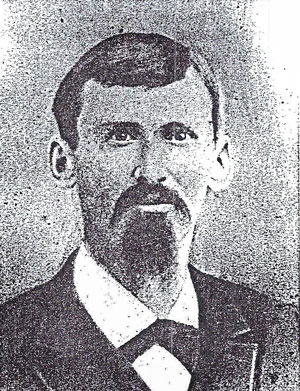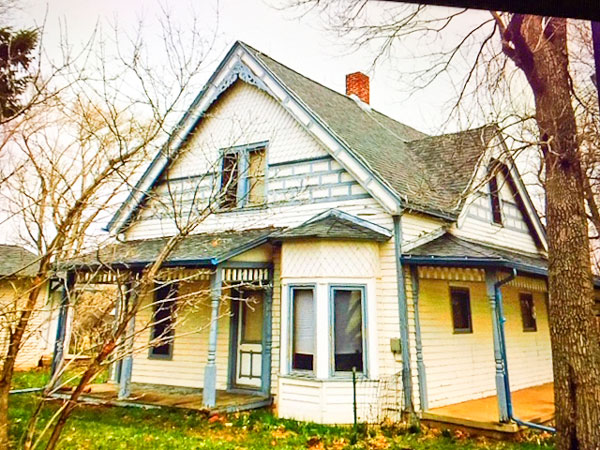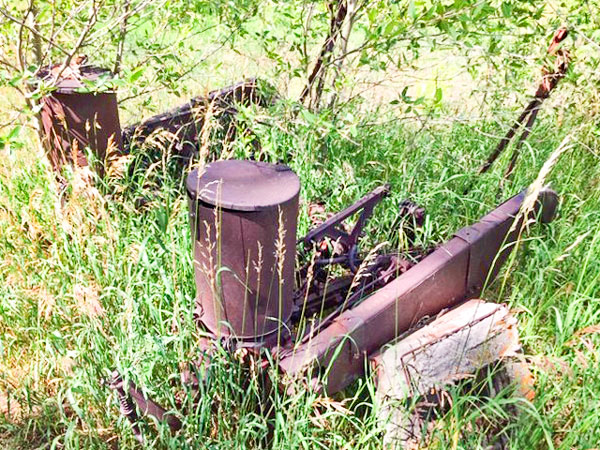The saga of Isaac Jegirtha Noe
Article and photos by Joe Gschwendtner; photo courtesy of the Douglas County History Research Center

Savvy early capitalist Isaac Jegirtha Noe learned principles of land acquisition working at Greenland Ranch.
Born in 1850, Isaac Jegirtha (I.J.) Noe hailed from Charlestown, Indiana. After a common education, he devoted his early years to farming. That was, until he fell in love and married Jennie Caine of Clark County in 1878. Meanwhile, his brother William had already homesteaded in Colorado and convinced I.J. and Jennie to join him.
Upon arrival in Colorado, he immediately landed a job with the Greenland Breeding Farm, forerunner of today’s 20,000-acre Greenland Ranch. Trustworthy and savvy, I.J. advanced rapidly over 14 years, moving from foreman, to ranch superintendent, and later, part owner with C.B. Kountz. Among his special duties was the evaluation and acquisition of additional ranchland for the business.
Having become self-educated on land quality and values, it was just a matter of time before I.J. found his own opportunity. So it was in 1892 that he uncovered and purchased his own acreage for cash on the barrelhead, just west of his former employer. Originally 1,120 acres and later expanded to 1,400 acres, he named it Eagle Mountain Ranch. This author hikes portions of this land some 75 times annually, as parts of it are now included in Douglas County Open Space at Spruce Mountain.
With his wife and son (Fred, born in 1885) by his side, Eagle Mountain Ranch flourished. Its claim to fame was registered shorthorn cattle, about which the Noes often bragged. Douglas County’s 1920 Record Journal, apparently without independent confirmation, called Villager’s Baron, one of the family’s shorthorns, a “record-breaker.” Other stock included Berkshire cattle and trotting horses. I.J. actually had his own race track on the ranch.

This is the house that I.J. built early on. It has since been rehabbed and upgraded nicely by the current owners.
Noe family livestock was first rate because I.J. and Fred were animal husbandry progressives, constantly working on herd improvement using genetics and other best practice scientific methods of the day. Arable land with stream and spring-fed irrigation also made for prolific hay crops as well as oats, wheat, barley and potatoes.
The Noes were good neighbors and well-known for their social events, chief among them barn dances and card games. I.J. was especially interested in international affairs and spoiled for a good debate with fellow ranchers in the upper West Plum Creek Valley. The home that he built still stands today in a copse of trees just east of Cook Creek.
Fred expanded the Noe bloodline with five sons and three granddaughters. But there was a fleeting moment in the family history when I.J.’s progeny was in great jeopardy.

Left precisely where it was when last used, this rusty device allowed the Noes to plant potatoes efficiently.
I.J. retired in 1924, and his son had taken over the ranch. In that same year, Fred terminated a ranch hand, a Mr. Cutts. The termination discussion went poorly, so much so that Cutts began beating his former employer. While others in the family heard Fred’s cries for help, none could stop the fight and Fred was thrown over a picket fence. Newspaper reports note that his assailant knocked him down again and started kicking him.
I.J., age 74, saved the day. Fearing Fred was about to be killed, he fired his shotgun at close range, succinctly ending the threat. Cleared of any wrongdoing by a jury of his peers, I.J. would live to an astonishing 93 years of age.
